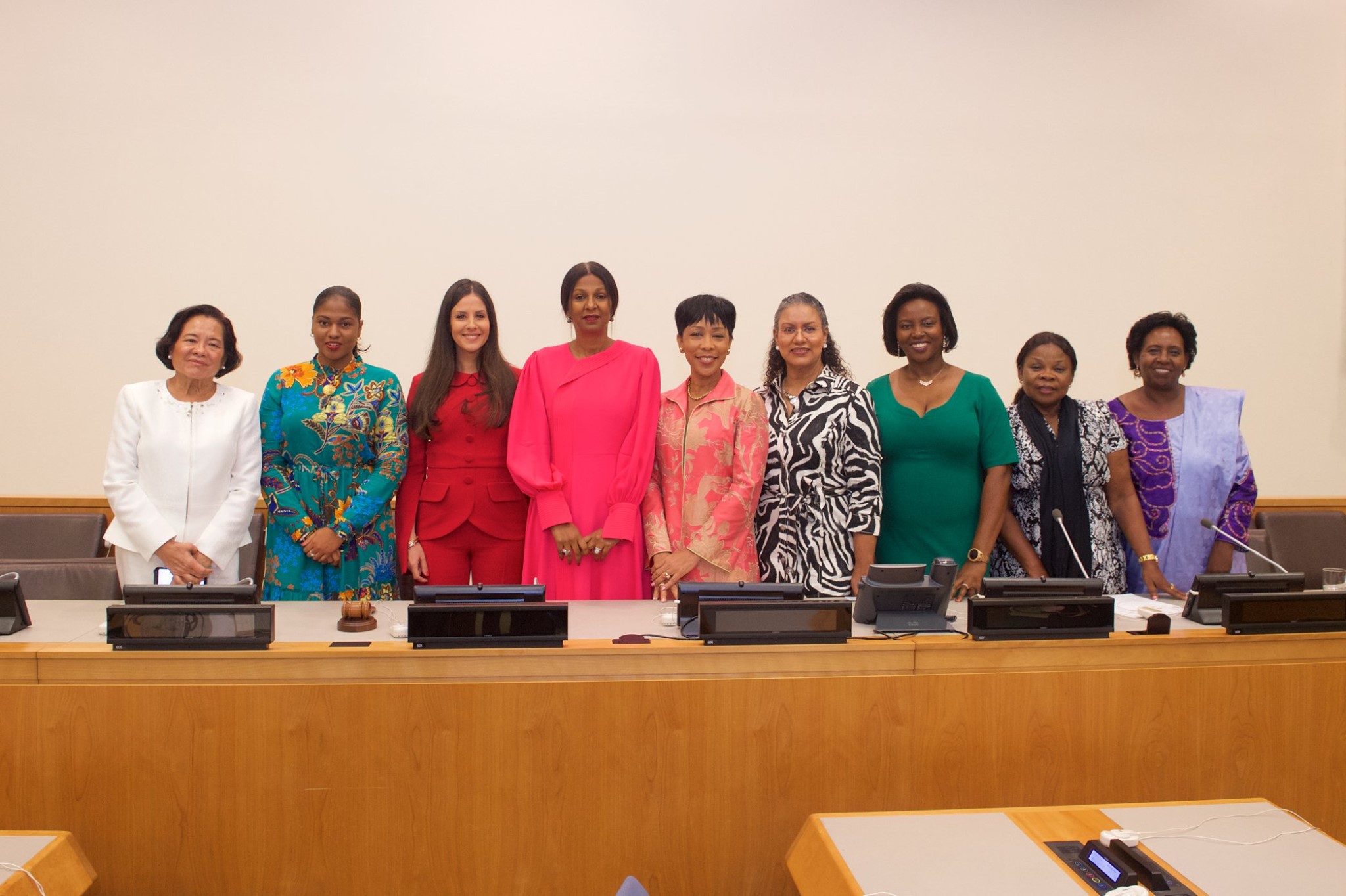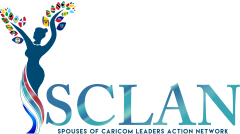
The Spouses of the CARICOM Leaders Action Network (SCLAN) in collaboration with Gilead Sciences, the United Nations Foundation and the United Nations Population Fund (UNFPA) hosted a side event entitled “Ensuring Access and Equity in Adolescents, Children and Women’s Health” today, September 24th, 2019 from 9 am – 11 am during the 74th Session of the United Nations General Assembly (UNGA).
The conference was attended by First Ladies as well as other eminent guests who support innovative initiatives to ensure access and equity in adolescents, children and women’s health at country and global levels. Other participants included multilateral institutions, UN agencies, the private sector, and civil society organizations.
The conference facilitated dialogue on strategically advancing SCLAN’s mission of a Caribbean free from gender based violence, teenage pregnancy, cervical cancer, NCDs, HIV/AIDS, tb and malaria with a particular focus on mental health based on long term goals set forth by the global community including UN Secretary-General Ban Ki-moon’s Every Woman, Every Child Global Movement and the Global Strategy for Women’s Children’s and Adolescents’ Health (2016-2030).
During the panel discussions, Chair of the Network and Special Envoy for Women and Children, Mrs Kim Simplis Barrow emphasized that many of the challenges faced can be addressed with “simple, affordable interventions”. She stressed the importance of multi-sectoral collaborations and the role First Ladies can play “to strengthen political will, mobilize resources and implement policies and programmes that make a difference”.
Director, Regional Support Team for Latin America and the Caribbean, UNAIDS, Dr. César Núñez noted that although the elimination of mother-to-child transmission is widely regarded as “low-hanging fruit” in the AIDS response, there were still 160,000 new infections among children globally last year. “The world has failed children,” he said. “We have to make sure that antenatal clinic visit happens during the first trimester.”
Assistant Director of the Pan American Health Organization, Dr. Jarbas Barbosa da Silva Jr, pointed to the importance of addressing equity in order to achieve every Sustainable Development Goal. “This is the right time to join efforts in having a more comprehensive and integrated approach. Let us complete the job in ending poverty… giving greater voice to children and adolescents and increasing access and quality of health and social services for everyone,” he said. Like HIV, adolescent pregnancy is driven by a web of factors including age, education, gender norms and socioeconomic status
“In every region in the world girls who are poor, poorly educated or in rural areas have a greater risk of becoming pregnant. Equity and equality are at the foundation of a comprehensive approach to sexual and reproductive health and rights. Everything we do must consider reaching those girls left behind,” said UNFPA Deputy Executive Director, Laura Londén.
SCLAN members are already implementing strategies to close the knowledge and healthcare access gaps for vulnerable communities in their countries. In Belize a project will expand access to HIV prevention and treatment for teens and young adults in Stann Creek, a district with one of the country’s highest rates of new HIV infections. In Guyana, SCLAN Vice Chair, Sandra Granger and the Anira Foundation will work on education and empowerment efforts targeting the three regions with the highest rates of adolescent pregnancy.
Other panellists at the session included Dr. Ami Bhatt of Global Oncology, Dr. Daniela Ligiero of Together for Girls, Dr. Betty Chiang of Gilead Sciences, Marijke Wijnroks of the Global Fund, Sir Trevor Hassell of the Healthy Caribbean Coalition and Ms. Sahar Vasquez of Mind Health Connect Belize.
First Ladies and Spouses of Heads of Government of the Caribbean Community (CARICOM) launched its network in September 2017, Spouses of CARICOM Leaders Action Network (SCLAN) to tackle issues related to the health and well -being of women, adolescents and children in the Caribbean. SCLAN is a non-governmental organization endorsed by CARICOM Heads of Government.
-END-
Tags:
